
views
X
Research source
Advair comes in an easy-to-operate disc-shaped inhaler called the "Diskus." Knowing how (and when) to use your Advair inhaler properly is vital to preventing asthma symptoms.
Using the Diskus Inhaler
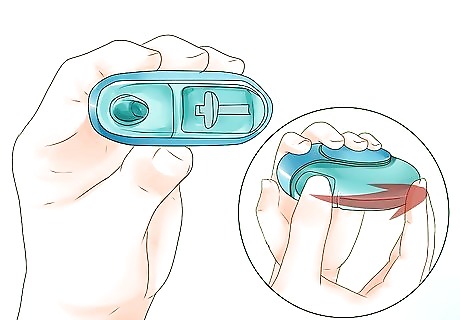
Expose the mouthpiece. Hold the Discus horizontal in one hand. With your other hand, put your thumb on the the small curved section. Slide it away from you. The inner part of the Diskus should turn and click into place. The mouthpiece is now exposed. Turn the mouthpiece towards you. Over the thumb grip, you should see a small window with a numbered dial underneath. The number tells you how many doses are left. When you're almost out, "0-5" will appear in red.
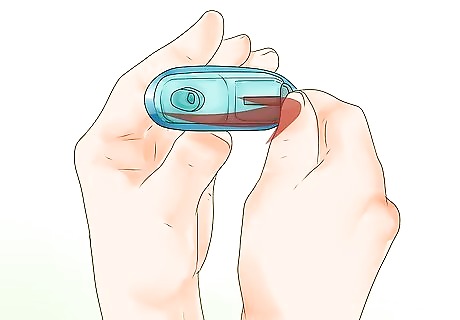
Push the lever to prepare the dose. Hold the inhaler flat and level with the mouthpiece facing you. Use your finger to slide the lever until you feel it click into place. The dose is now ready. There are many small blister packs full of medicine inside the inhaler. Pushing the lever breaks one of the blister packs, releasing the medicine.
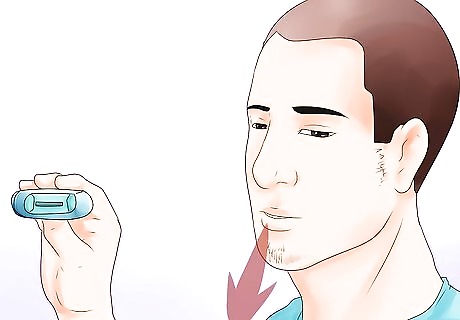
Breathe out as much as you can. Ideally, you want to empty your lungs completely. Face away from the inhaler as you exhale to avoid displacing the prepared dose.

Inhale. Bring the Advair inhaler to your mouth. Place your lips on the mouthpiece. Breathe in deeply. Take your entire breath through your mouth in order to inhale the complete dose. Don't breathe through your nose. Keep the inhaler flat and level as you breathe. This ensures the medicine is dispensed properly.

Hold it in. Hold your breath for at least 10 seconds (or as long as you can) after inhaling. The medicine needs a short amount of time to be fully absorbed. After 10 seconds (or as long as you're able to hold your breath), breathe out slowly, smoothly and evenly. You can start breathing normally.

Rinse your mouth. Rinse your mouth out with clean water. Do this each time you take a dose of Advair. Finish by gargling before your spit the water out. Do not swallow the water you use to rinse. This is mainly to prevent a fungal infection of the throat called Thrush. Advair can cause an imbalance of the organisms in your mouth which allows this fungus to take hold.
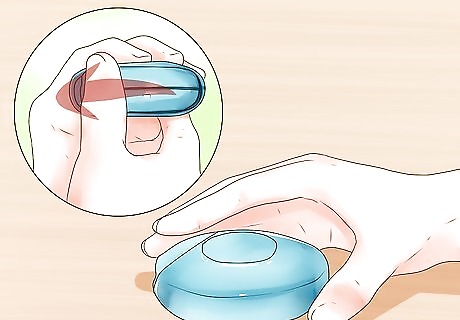
Close and store the inhaler. Slide the Diskus closed again. The dose dial will automatically move forward one number. Put the inhaler someplace safe and clean for easy access in the future. Store Advair in a cool, dry place where it isn't within the reach of children. An Advair inhaler can be used for one month after it is first removed from the foil.
Using Advair Responsibly

When in doubt, always follow your doctor's directions. The specifics for when to take Advair vary from patient to patient. The only way to know for sure when to use your inhaler is to get a doctor's advice. Luckily, Advair is a prescription drug, so you'll need to meet with a doctor before you can use it. The rest of the instructions in this section are borrowed from online Advair resources. They are intended as general guidelines. Again, only your doctor can tell you what's right for you.

Use Advair twice daily to prevent attacks. Advair is typically used once in the morning and once in the evening. Try to take your Advair doses at roughly the same time each day. You don't have to hit these times exactly every single day, but you should do your best to get close. Within an hour of your scheduled time is usually fine. For long term prevention of asthma symptoms, schedule your two doses 12 hours apart. For instance, you might try taking your first dose at 8:00 in the morning when you wake up and the second at 8:00 in the evening. Setting an alarm on your phone or watch can be a big help here.

Take one dose at a time. This is crucial. You don't want to take more than your recommended dosage in a single 12-hour period unless your doctor tells you to. You may not be able to taste or smell the medicine when you inhale it, but it's still there. You won't get "duds," so don't take extra medicine. Do not double an Advair dose even if you feel your symptoms worsen. The medicine takes time to work. Your doctor will be able to recommend alternative treatments for sudden, severe symptoms.
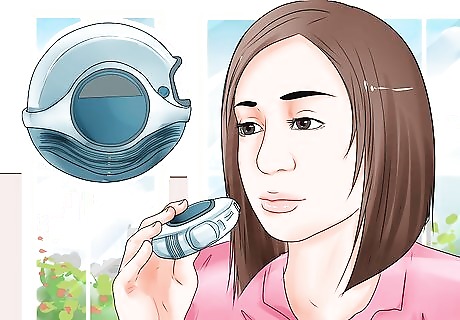
Take the medicine until you are directed to stop. Just like you shouldn't take the medicine more often than it's prescribed, you also won't want to take it less often. Continue to take the Advair at the prearranged times until your doctor tells you to stop. If you stop too early, your symptoms can worsen.
When Not to Use Advair

Don't use Advair to fight sudden attacks. This is very important to understand. The medicine in your Diskus is not meant to stop sudden, acute asthma attacks. It does not act quickly enough to have a significant effect. Taking multiple doses can result in side effects — sometimes severe ones. Instead, carry a doctor-prescribed "rescue inhaler" for this. There are many types of rescue inhalers available. Some use a type of drug called beta-agonists, but alternatives are available, so talk to your doctor if you don't already have one.

Don't take "makeup" doses if you miss one. Missing a dose of Advair isn't something you'll want to make a habit of, but accidents happen. If you forget to take a dose, you can take it late if only an hour or two have passed. If your next dose is coming up, simply wait and take it then. Take just one dose at this time — don't take two to make up for the one you missed.
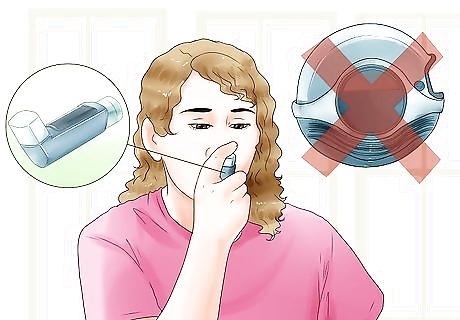
Don't use Advair if you are taking other LABA drugs. One of the active ingredients in Advair, Salmeterol, is a type of drug called a long-acting beta agonist, or LABA. These drugs are slower, more gradual versions of the drugs used in many rescue inhalers. Don't take Advair if you are already taking a LABA for your asthma. The combined dosage may be enough to result in serious negative side effects. Your doctor should tell you this when prescribing Advair. A few common examples of LABA drugs (and brand names to go with each) include: Salmeterol (Serevent), Formoterol (Foradil, Perforomist), and Arformoterol (Brovana).
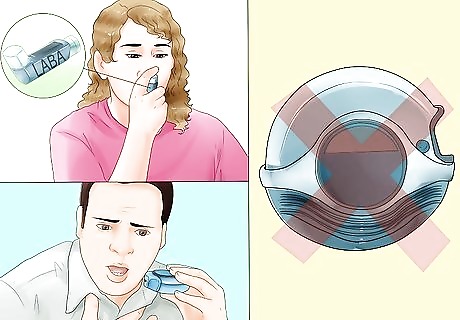
Don't use Advair if you have a complicating medical condition. While Advair is safe for the majority of patients, some people should not take it. Certain conditions, diseases, and drugs can change the effects of Advair, making it unsafe. In some cases, the negative interactions can be quite dangerous. See below. Do not take Advair if you: Are allergic to the active ingredients (salmeterol and fluticasone) Have a severe allergy to milk proteins Are already taking LABA's (see above) Are having a sudden "attack" of symptoms (see above) Talk to your doctor first if you: Are pregnant or breastfeeding Have known allergies to other medicines Have heart disease or high blood pressure Have a seizure disorder like epilepsy Have a weakened immune system Have diabetes, glaucoma, tuberculosis, osteoporosis, a thyroid disorder, or liver disease.

















Comments
0 comment